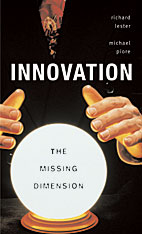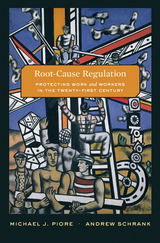
The Reagan and Bush years have left us with a troublesome dilemma: how to balance our budget deficit against our social deficit. This book takes up the urgent question of how, in a time of economic crisis and constraint, we can meet the pent-up demand for spending on our nation’s neglected poor, infirm, and disadvantaged, old and young. Michael Piore’s ambitious response is to develop a new social theory that balances individual preferences against the claims and responsibilities of the community. By explaining the role of groups in economic and social life, this theory makes sense of a host of perplexing social phenomena and policy issues, from equal employment opportunity to international competitiveness to the decline of organized labor, from multicultural education to health insurance to the underclass.
Piore traces our difficulties in addressing these issues to the limits of liberal social theory, particularly its sharp distinctions between individuality and community. He offers an alternative view of individuality as emerging through the discussions and debates conducted among a community’s members. These discussions, Piore suggests, have turned inward, away from the borderlands where social groups and economic organizations meet—and therein lies the crux of some of the country’s deepest political and economic problems. His book points beyond the liberal conception of politics as a negotiation among competing interests and of policymaking as technical decisionmaking. Instead, it prescribes a politics focused on the process of discussion and debate itself, a politics that enlarges the borderlands by broadening the range of people who talk to one another and the range of topics they address.

Amid mounting concern over the loss of jobs to low-wage economies, one fact is clear: America's prosperity hinges on the ability of its businesses to continually introduce new products and services. But what makes for a creative economy? How can the remarkable surge of innovation that fueled the boom of the 1990s be sustained?
For an answer, Richard K. Lester and Michael J. Piore examine innovation strategies in some of the economy's most dynamic sectors. Through eye-opening case studies of new product development in fields such as cell phones, medical devices, and blue jeans, two fundamental processes emerge.
One of these processes, analysis--rational problem solving--dominates management and engineering practice. The other, interpretation, is not widely understood, or even recognized--although, as the authors make clear, it is absolutely crucial to innovation. Unlike problem solving, interpretation embraces and exploits ambiguity, the wellspring of creativity in the economy. By emphasizing interpretation, and showing how these two radically different processes can be combined, Lester and Piore's book gives managers and designers the concepts and tools to keep new products flowing.
But the authors also offer an unsettling critique of national policy. By ignoring the role of interpretation, economic policymakers are drawing the wrong lessons from the 1990s boom. The current emphasis on expanding the reach of market competition will help the analytical processes needed to implement innovation. But if unchecked it risks choking off the economy's vital interpretive spaces. Unless a more balanced policy approach is adopted, warn Lester and Piore, America's capacity to innovate--its greatest economic asset--will erode.

Work is now more deadly than war, killing approximately 2.3 million people a year worldwide. The United States, with its complex regulatory system, has one of the highest rates of occupational fatality in the developed world, and deteriorating working conditions more generally. Why, after a century of reform, are U.S. workers growing less safe and secure? Comparing U.S. regulatory practices to their European and Latin American counterparts, Root-Cause Regulation provides insight into the causes of this downward trend and ways to reverse it, offering lessons for rich and poor countries alike.
The United States assigns responsibility for wages and hours, collective bargaining, occupational safety, and the like to various regulatory agencies. In France, Spain, and their former colonies, a single agency regulates all firms. Drawing on history, sociology, and economics, Michael Piore and Andrew Schrank examine why these systems developed differently and how they have adapted to changing conditions over time. The U.S. model was designed for the inspection of mass production enterprises by inflexible specialists and is ill-suited to the decentralized and destabilized employment of today. In the Franco-Iberian system, by contrast, the holistic perspective of multitasking generalists illuminates the root causes of noncompliance—which often lie in outdated techniques and technologies—and offers flexibility to tailor enforcement to different firms and market conditions.
The organization of regulatory agencies thus represents a powerful tool. Getting it right, the authors argue, makes regulation not the job-killer of neoliberal theory but a generative force for both workers and employers.
READERS
Browse our collection.
PUBLISHERS
See BiblioVault's publisher services.
STUDENT SERVICES
Files for college accessibility offices.
UChicago Accessibility Resources
home | accessibility | search | about | contact us
BiblioVault ® 2001 - 2024
The University of Chicago Press









